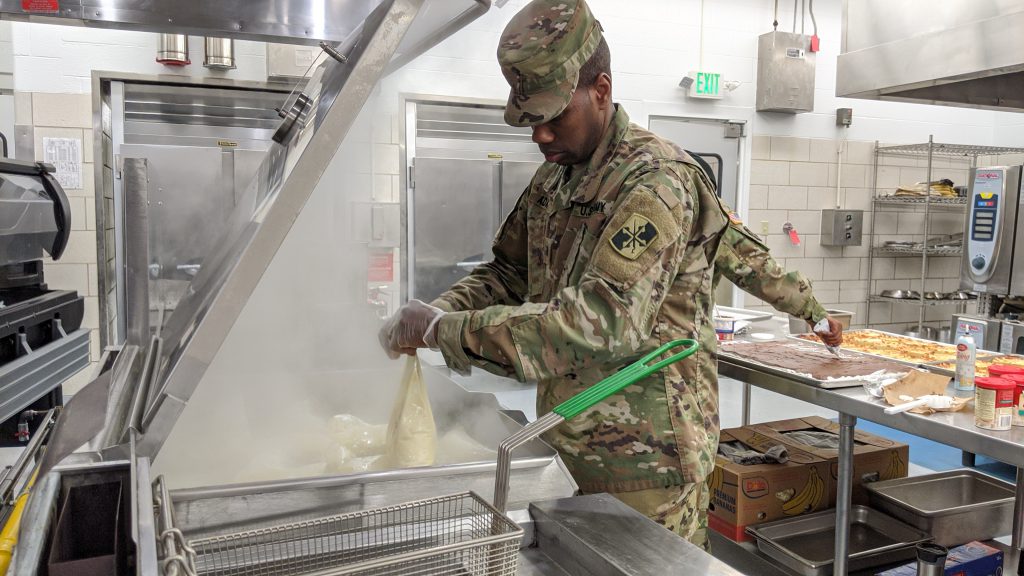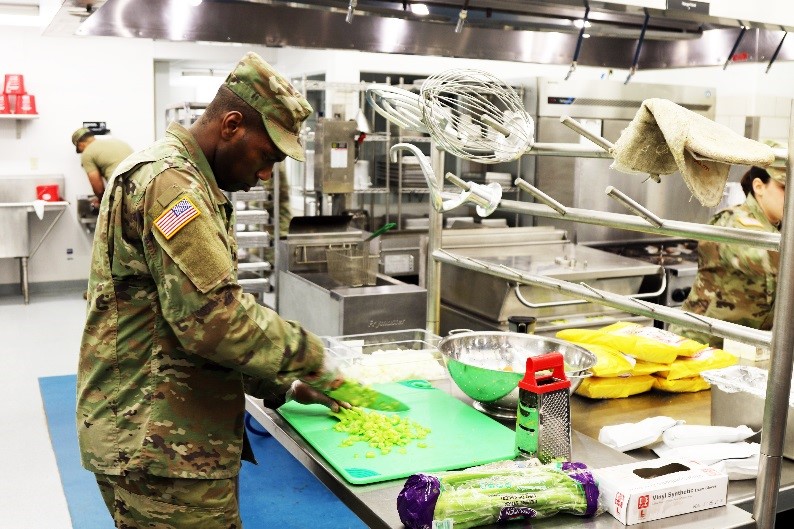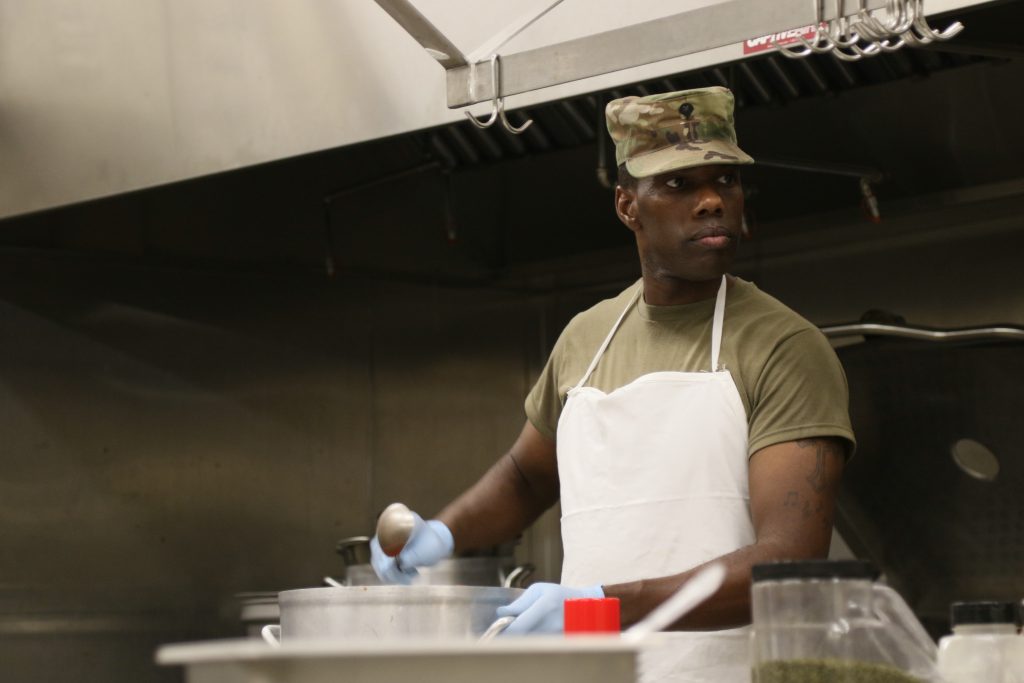Feeding Troops, Boosting Morale
[vc_row][vc_column][vc_column_text]
Article and photos by Maj. Cody Starken, 58th Expeditionary Military Intelligence Brigade
[/vc_column_text][vc_column_text]Edgewood, Md. – Light switches flipped to on, seats straightened dress right dress, and tables cleaned before the doors swing open and hungry Soldiers file into the chow hall for their only hot meal for the day. The smell of food and the distinct sounds of Soldiers eating replaced the once stillness of the dining facility. This hot meal is luxury that they get to enjoy, because of the hard work and long hours that Maryland National Guard culinary specialists put forth.
Spc. Brandon Adams, a culinary specialist in the 629th Expeditionary Military Intelligence Battalion, knows the three hours of meal prep before the Soldiers arrival for their meal at the 70th Regional Training Institute facility at Edgewood, Maryland, is a critical part of the job. Culinary specialists have to work long hours with few breaks to sustain a large group of Soldiers on any given day.

Adams, a sous-chef at Walter Reed National Military Medical Center for the past 9 years, was inspired to join the Maryland Army National Guard.
“I saw the Soldiers coming into hospital seeing them at one of their lowest moments in life working through their recovery,” said Adams. “That is what inspired me to join the military.”
Adams shares his time and talents as a member of his church’s Steward Board within his local community and supporting local youth groups.
Although Adams had culinary experience prior to joining the Maryland National Guard, it is not necessary to have that prior experience to become a 92G, culinary specialist. Soldiers learn the US Army culinary standards and techniques at an eight-week course at the Quartermaster School in Fort Lee, Virginia.

The Army teaches culinary specialists to maximize their food quantity and reduce food waste to save money.
“The school focuses on culinary techniques, such as sanitation, fundamentals of food service, cooking and baking,” said Adams.
Culinary specialists need to know fundamentals that include the proper cooking temperature for different types of meats or how to repurpose un-cooked food for the next meal. They also may have to cook meals in parallel to make sure they can feed the Soldiers throughout the day.
For example, Adams explained, that they prepped unused chicken from a previous day’s meal while making the current night’s dinner to create a Cordon-bleu style baked chicken and stuffing meal for dinner the next day.
The role of a culinary specialist is an important one, they have a responsibility to cook the meals right and on time. Soldiers in this career field play a role in boosting morale during training and deployments.
“You don’t have to love cooking, but you should be a people person, with customer service skills, and be able to work long hours,” said Adams. “You have to be a part of a team. I enjoy seeing the smiles on their faces and knowing their eating good-quality food.”
 [/vc_column_text][/vc_column][/vc_row]
[/vc_column_text][/vc_column][/vc_row]
